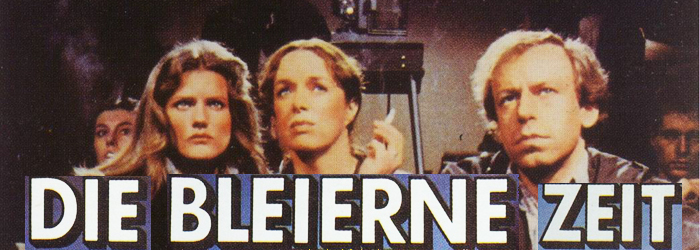 THE GERMAN SISTERS
THE GERMAN SISTERS
a.k.a. Die bleierne Zeit, Marianne and Juliane
Dir. Margarethe von Trotta, 1981
West Germany, 102 mins.
In German with English subtitles.
FRIDAY, JANUARY 31 – 7:30 PM
With MARGARETHE VON TROTTA and BARBARA SUKOWA in attendance!
ONE NIGHT ONLY!
Margarethe von Trotta’s 1981 film Die bleierne Zeit is a paradigmatic film of the New German Cinema. It brings together many of the themes that preoccupied the directors associated with that moment: the reluctance of Germans to face their recent history, the continuity of fascist structures well beyond the fall of the Reich, the family as the smallest cell of the State, the sexual division of labor, and the petty bourgeois fear of otherness. Many German directors working in the post-68 period explored these themes, notably R.W. Fassbinder in Fear of Fear and Ali: Fear Eats the Soul, Alexander Kluge in Patriotinnen and Part-Time Work of a Domestic Slave, Helke Sander in The All-Around Reduced Personality, and Helma Sanders-Brahms in Beneath the Paving Stones the Beach, but they receive perhaps their strongest and clearest expression here.
Die bleierne Zeit also directly addresses the motivations and consequences of armed struggle against a democratic state. The Red Army Faction was generally reviled in German civil society, and the attitude towards them within the ultra-left, from within whose ranks it sprung, was a mix of admiration and disappointment. A generation that swore not to repeat the mistakes of its parents’ generation had to take drastic action—that much was clear to everyone—but the debate quickly shifted its attention away from this unquestionable ethical imperative. The dominant discourse concerned itself with legal questions about whether taking “innocent” lives could ever be justified on political grounds, and whether the RAF’s activities should be considered political acts in the first place. In leftist circles the debate was strategically motivated: would armed struggle succeed in destroying nothing but the popular support that the anti-imperialist movement, the student movement, and the women’s movement had been slowly able to generate? These questions were collectively addressed in the omnibus film Germany in Autumn to which von Trotta’s frequent collaborators Volker Schöndorff and R.W. Fassbinder contributed, and Die bleierne Zeit could be considered a delayed contribution to this debate.
By following the thinly fictionalized story of Gudrun Ensslin through the relationship that she developed with her sister while in prison, Die bleierne Zeit focuses on something that is unbelievably rare in mainstream cinema: a strong friendship between women that is not mediated by a man. This is a feature that all of her films have in common, from The Second Awakening of Christa Klages to Hannah Arendt. Like Helke Sander and Helma Sanders-Brahms, von Trotta often thematizes the question of what kind of work—political, intellectual, or otherwise—women are qualified to engage in, and her films have been said to “offer a glimpse of a post-patriarchal cinema.”
This January, the Spectacle is proud to welcome Margarethe von Trotta to an encore screening of Die bleierne Zeit. Von Trotta will introduce the screening, which will be followed by a discussion on these themes and on von Trotta’s work in general.
